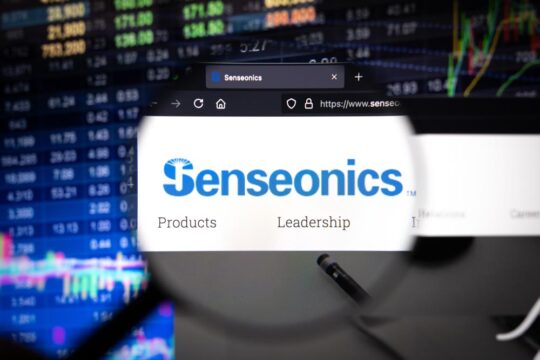Advertisment
ILTS 2014: Liver-directed cellular therapy – hope or hype?
Feature Symposium. Stephen Strom, Karolinska Institutet, Stockholm, Sweden. Luc van der Laan, Erasmus Medical Center, Rotterdam, the Netherlands. Alberto Sanchez-Fueyo, King’s College Hospital, London, UK. David Hay, University of Edinburgh, UK.
Cellular therapy as a treatment option for acute and chronic liver disease has become an intense area of research as organ shortages increasingly restrict the availability of liver transplantation. In a featured symposium on this topic, four leading experts provided updates on the latest and most promising developments.
Professor Stephen Strom from Karolinska Institutet in Stockholm, Sweden, discussed the current state of human hepatocyte transplantation (HT). HT is considered feasible as bridge therapy for patients on the transplantation waiting list, as well as for repopulation of liver cells in patients with acute liver failure and correcting metabolic defects without the need for whole organ transplantation. To date, 117 clinical HT procedures have been carried out. One major difficulty that was encountered in the clinical setting was the ability of the donor cells to gain a growth advantage over the native hepatocytes, which is not always the case eg in metabolic liver disease. Attempts at improving repopulation using radiation and hepatic resection have as yet been unsuccessful. Another challenge in HT is selection of donor cell source. Cells harvested from donor livers are often too poor to be viable for HT. Foetal hepatocytes have been shown to repopulate the native liver effectively but slowly: 10% repopulation may take as long as six months or more. Human amnion stem cells have shown promise as a source of donor cells in mouse models of human metabolic liver disease and acute liver failure with no need for immunosuppression, and this technique is currently being translated into clinical use.
Mesenchymal stem cells (MSC) is another option that has attracted considerable attention, although in the opinion of Professor Luc van der Laan from Rotterdam, the hype over MSC as a magic bullet for the treatment of end-stage liver disease may have come to an end. That said, results from clinical studies have been promising and provide a rationale for further development. MSC are capable of releasing trophic and growth factors and promote exosmosis, and has anti-fibrotic and matrix remodelling effects. To date, the clinical experience of MSC therapy for the treatment of liver disease comprises 158 studies worldwide. Autologous bone marrow MSC transplantation in patients with acute liver failure due to hepatitis B infection had a modest beneficial effect on serum albumin and total bilirubin levels, prothrombin time and MELD score compared with controls, which appeared after approximately two to three weeks [1]. There was no significant difference in mortality after 192 weeks of follow-up. In contrast, allogeneic ‘off-the-shelf’ preparations of umbilical cord-derived MSC (UC-MSC) significantly increased survival rates in acute hepatitis B-induced liver failure, reduced MELD scores, and increased serum albumin, cholinesterase, platelet counts, and prothrombin activity; patients receiving UC-MSC also had significantly improved survival at 48 and 72 weeks of follow-up compared with controls [2].
Dr Alberto Sanchez-Fueyo at King’s College Hospital is the principal investigator on a pilot clinical study for evaluating regulatory T-cell (Treg) therapy in liver transplantation. Tregs have been shown in animal models to be capable of suppressing a range of inflammatory responses, and trials in graft-versus-host disease and type-1 diabetes have indicated that Treg immunotherapy can induce tolerance [3-6]. A study presented as an oral paper by Kenichiro Yamashita and colleagues from Japan demonstrated that Treg cell therapy may allow early withdrawal and cessation of immunosuppressive therapy after living donor liver transplantation.
In the final presentation of the symposium, Dr David Hay reported on ongoing work at the University of Edinburgh to generate high-fidelity human hepatocytes from pluripotent stem cells with the help of a novel polymer substrate which is superior to biological substrates in terms of dedifferentiation rate and function. The generated hepatocytes proved equivalent to primary adult hepatocytes following incubation with known hepatotoxins [7]. The method is currently being commercialised in a spin-off company called FibromEd.
References
1. Peng, L., et al., Autologous bone marrow mesenchymal stem cell transplantation in liver failure patients caused by hepatitis B: short-term and long-term outcomes. Hepatology, 2011. 54(3): p. 820-8.
2. Shi, M., et al., Human mesenchymal stem cell transfusion is safe and improves liver function in acute-on-chronic liver failure patients. Stem Cells Transl Med, 2012. 1(10): p. 725-31.
3. Brunstein, C.G., et al., Infusion of ex vivo expanded T regulatory cells in adults transplanted with umbilical cord blood: safety profile and detection kinetics. Blood, 2011. 117(3): p. 1061-70.
4. Di Ianni, M., et al., Tregs prevent GVHD and promote immune reconstitution in HLA-haploidentical transplantation. Blood, 2011. 117(14): p. 3921-8.
5. Marek-Trzonkowska, N., et al., Administration of CD4+CD25highCD127- regulatory T cells preserves beta-cell function in type 1 diabetes in children. Diabetes Care, 2012. 35(9): p. 1817-20.
6. Bluestone, J.A., Q. Tang, and C.E. Sedwick, T regulatory cells in autoimmune diabetes: past challenges, future prospects. J Clin Immunol, 2008. 28(6): p. 677-84.
7. Szkolnicka, D., et al., Accurate prediction of drug-induced liver injury using stem cell-derived populations. Stem Cells Transl Med, 2014. 3(2): p. 141-8.





